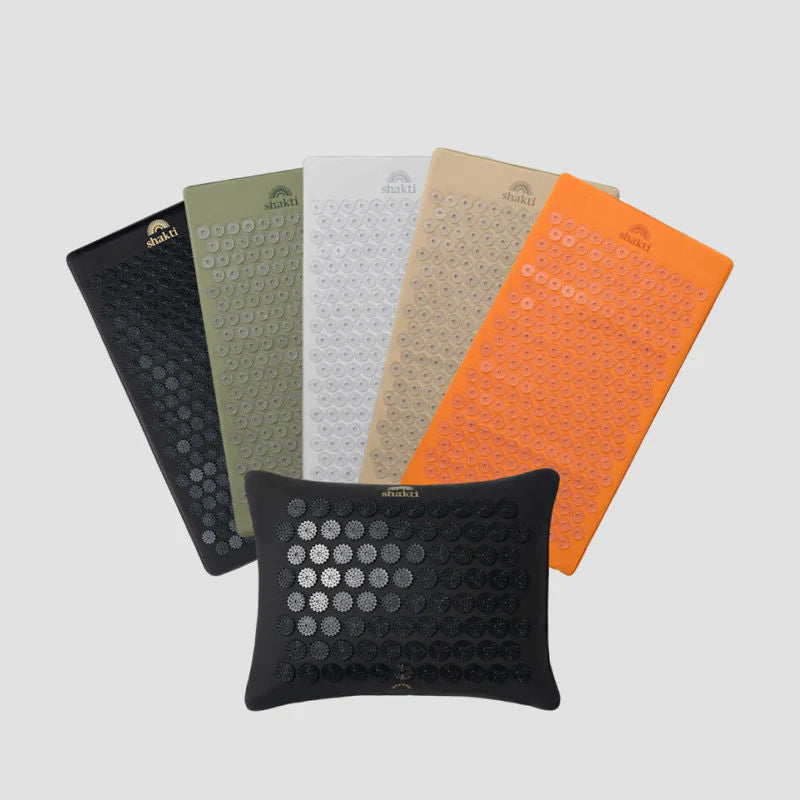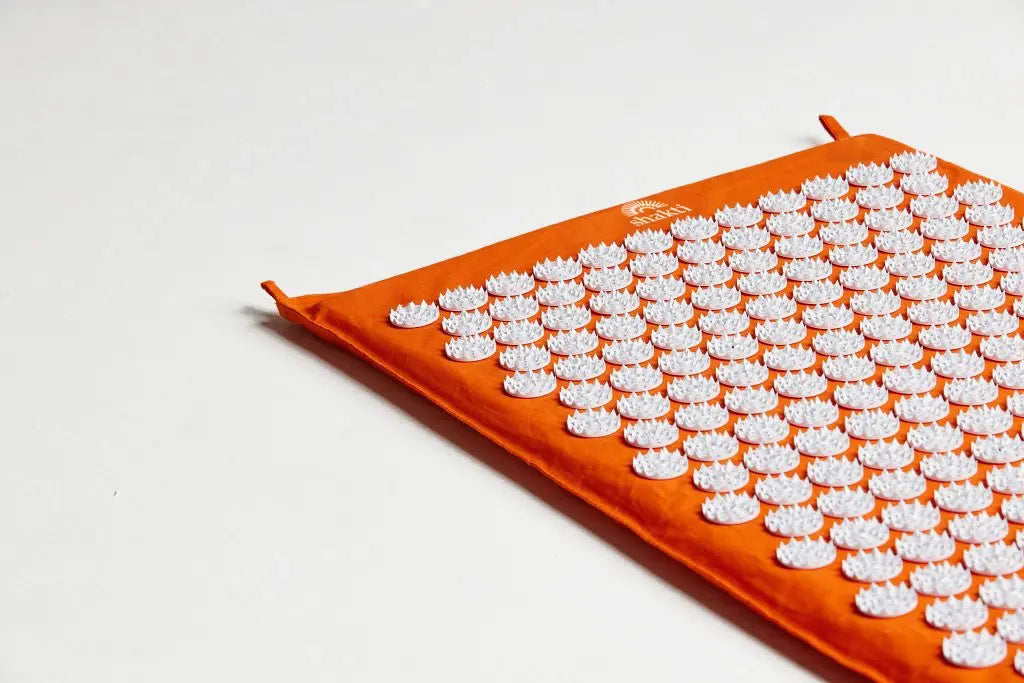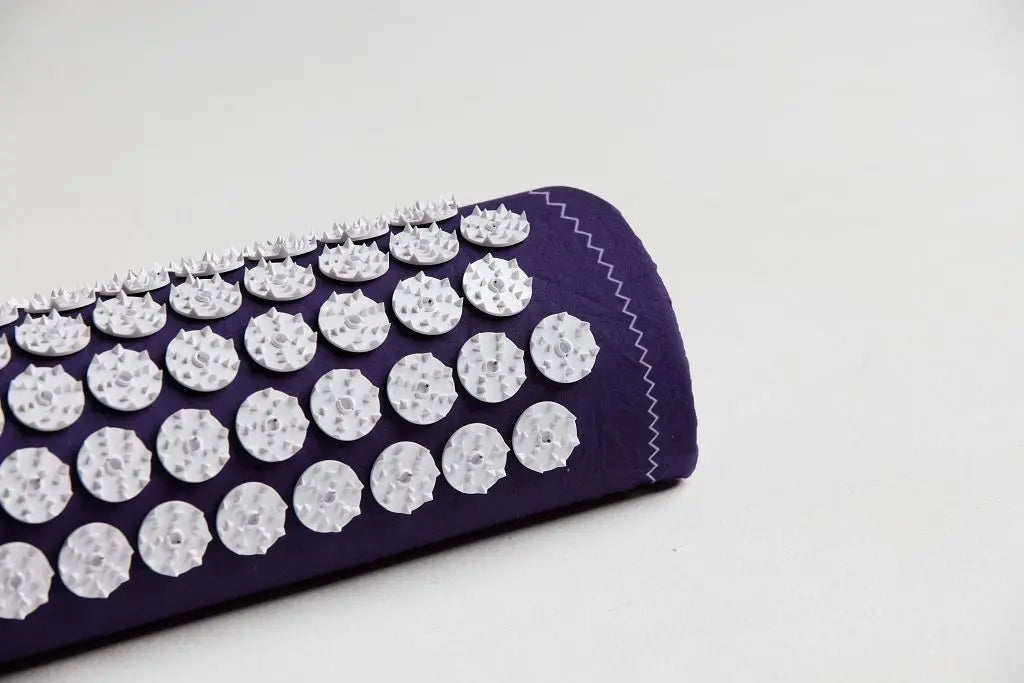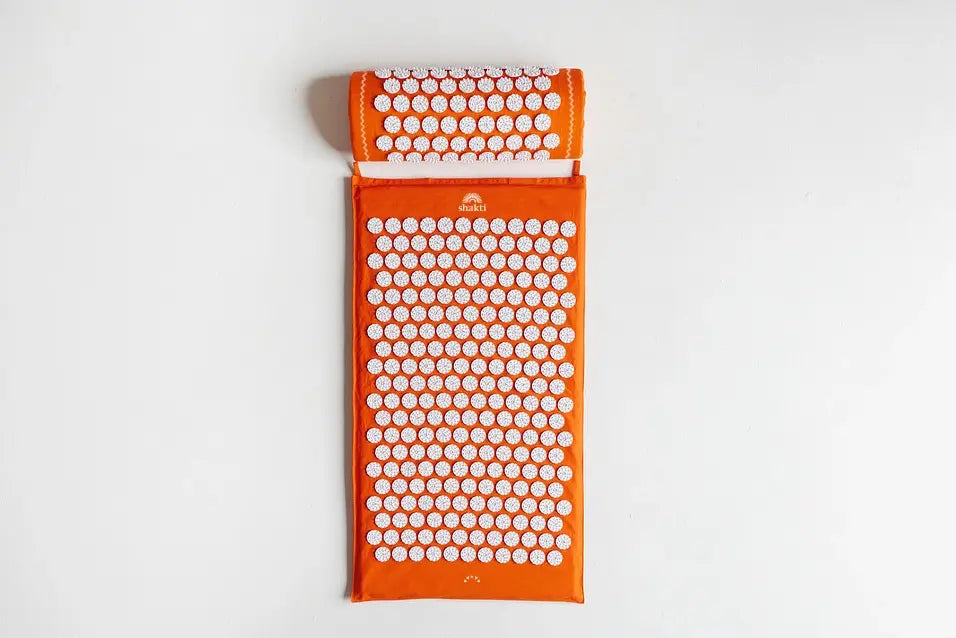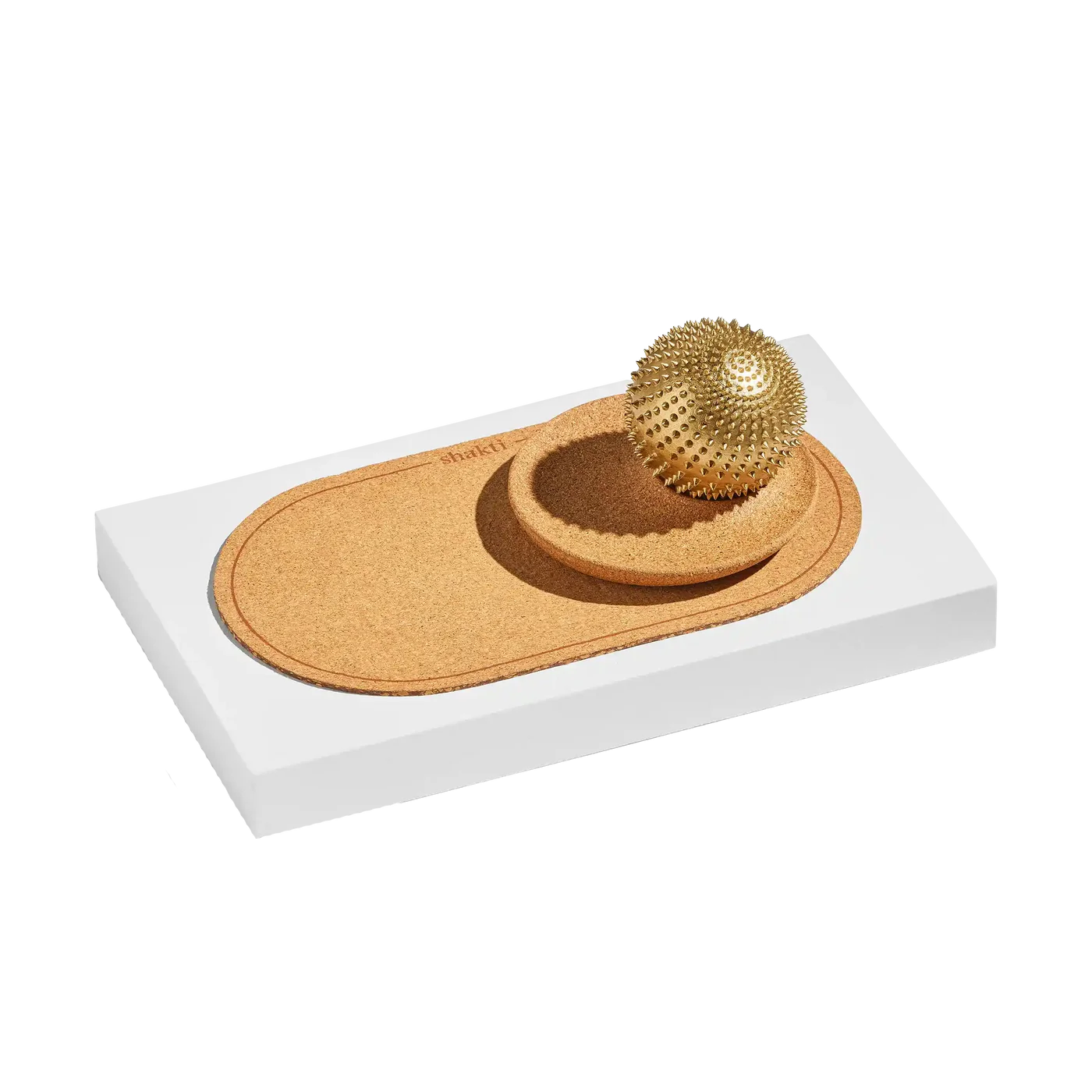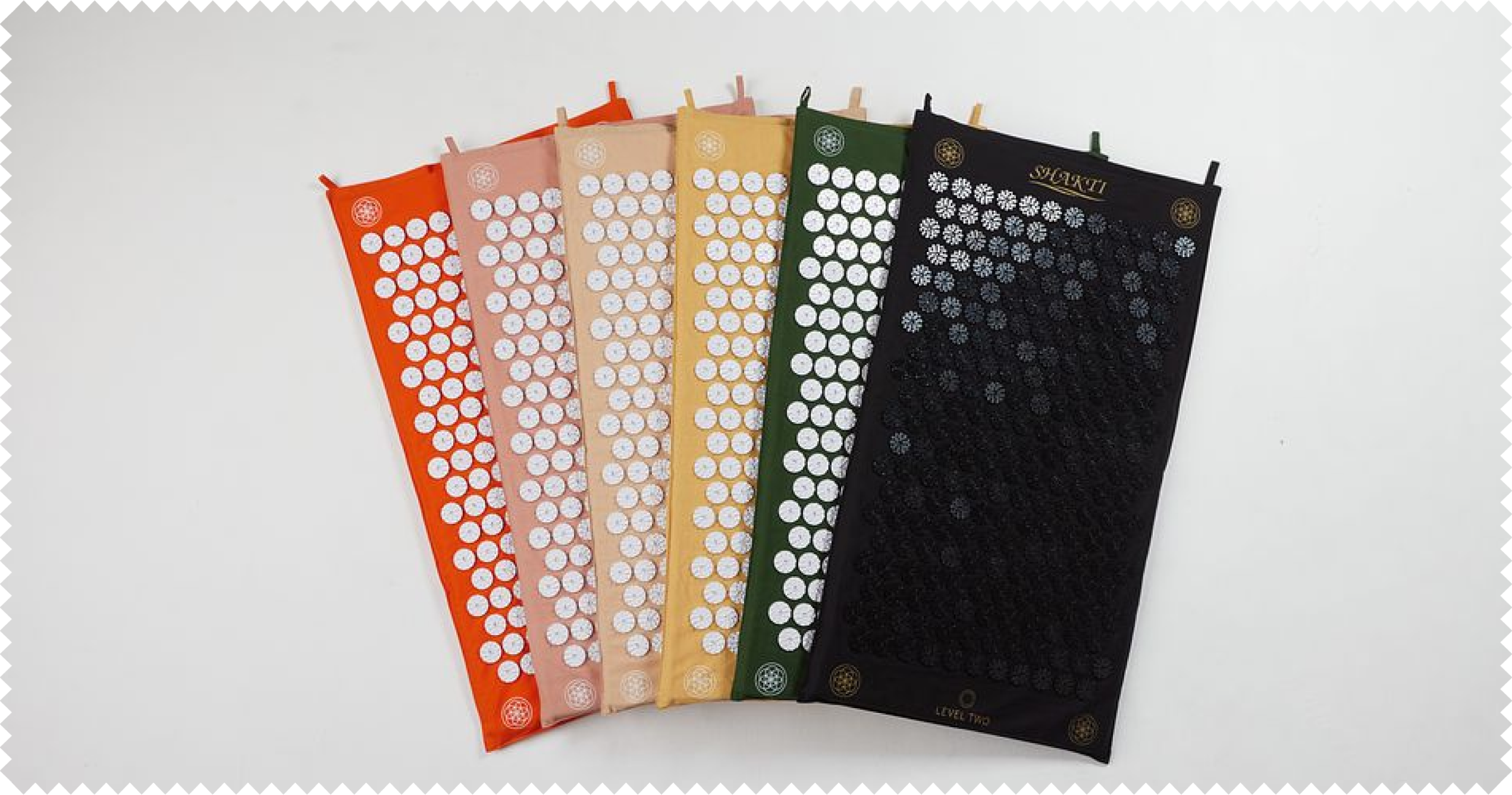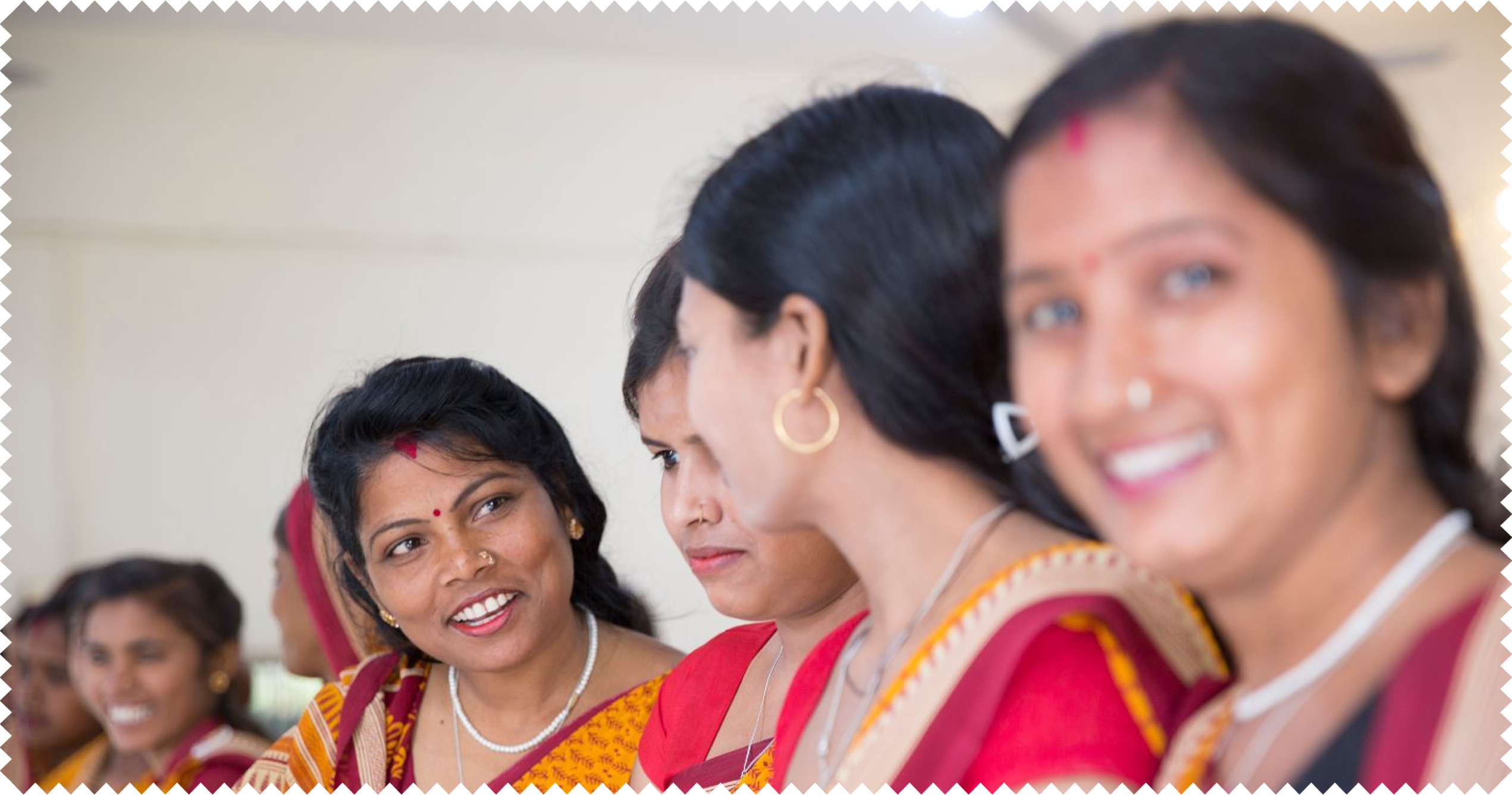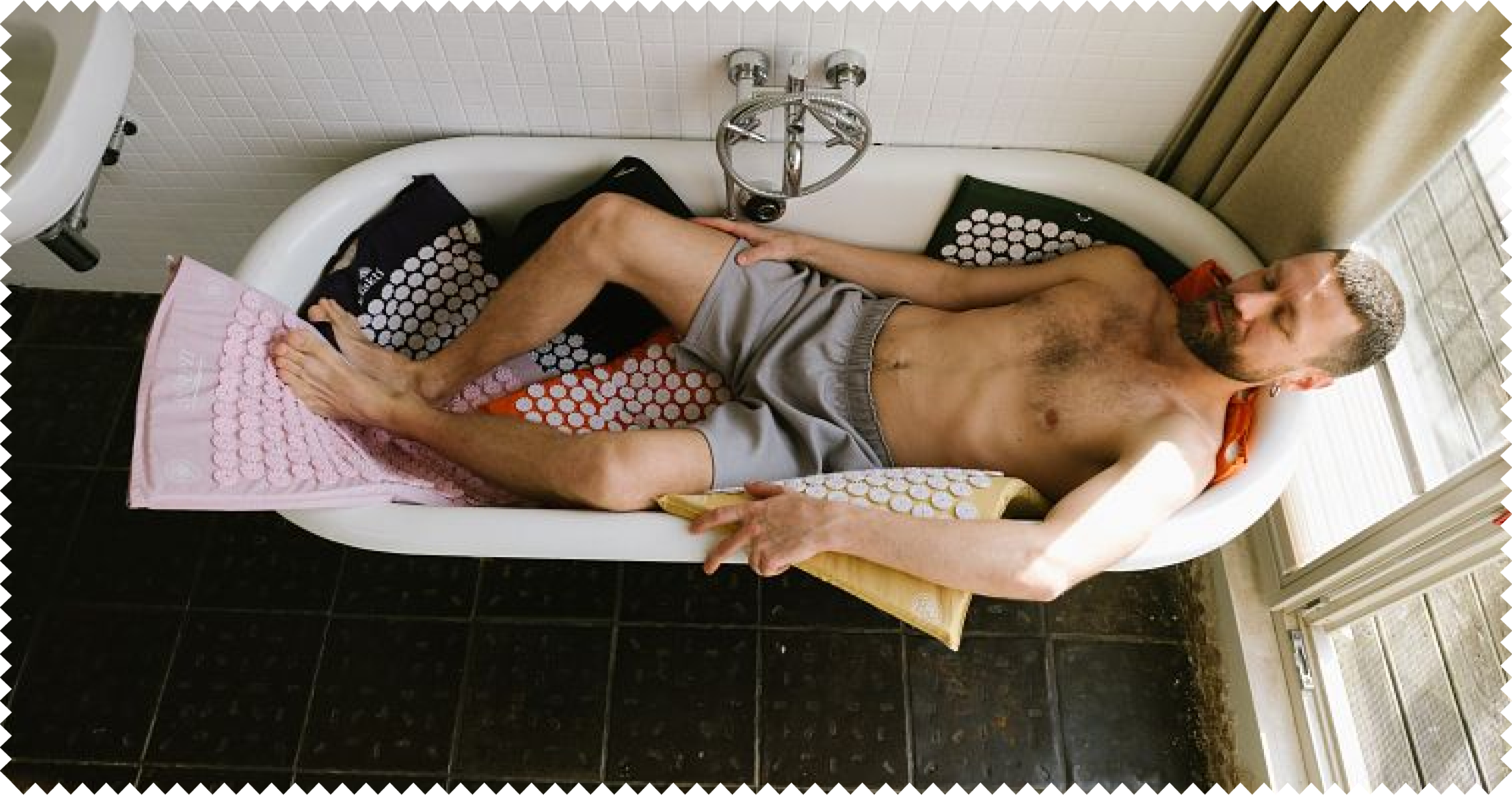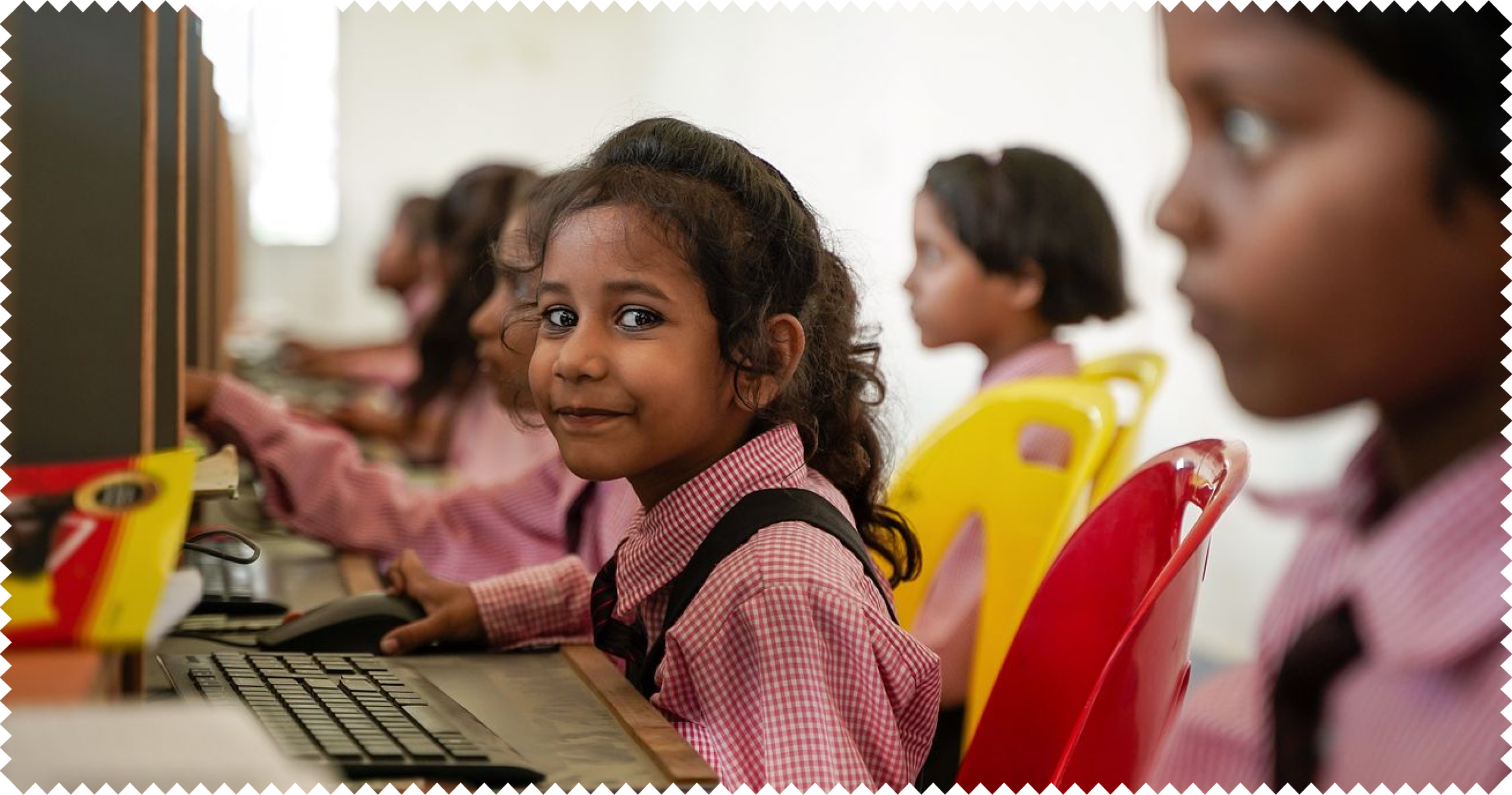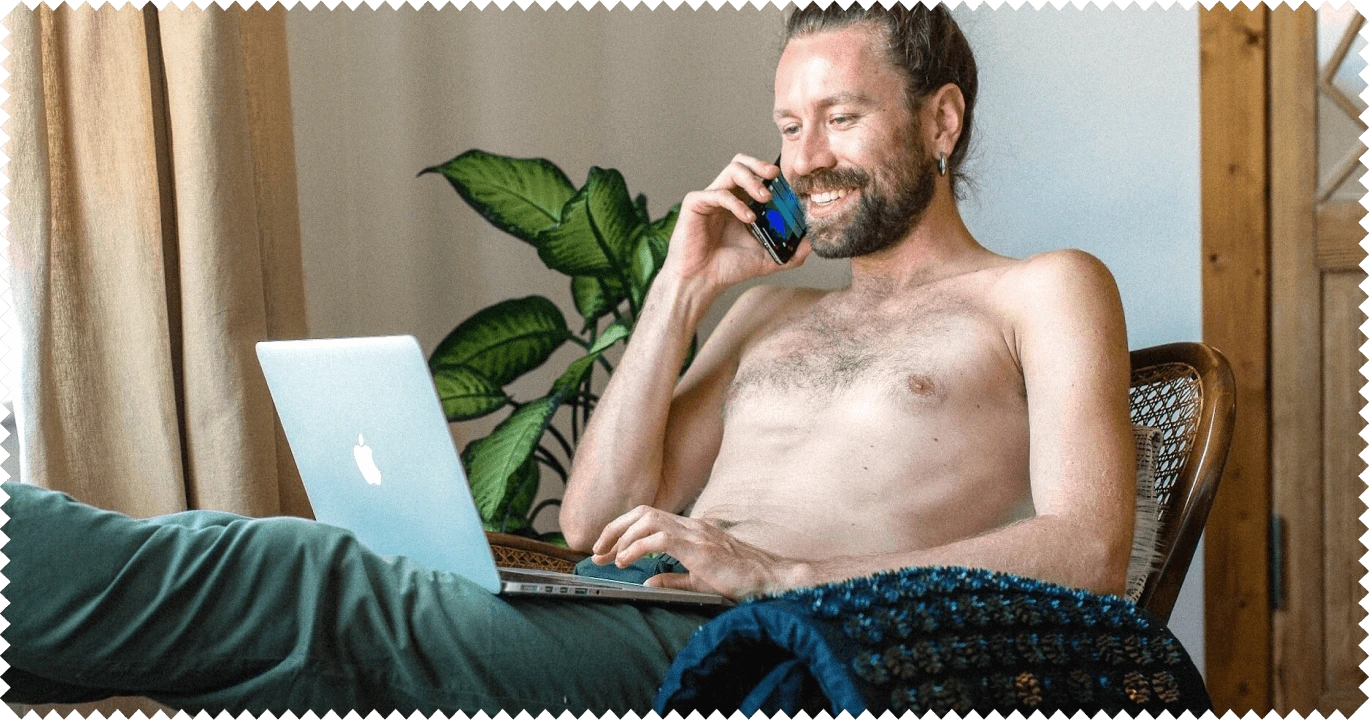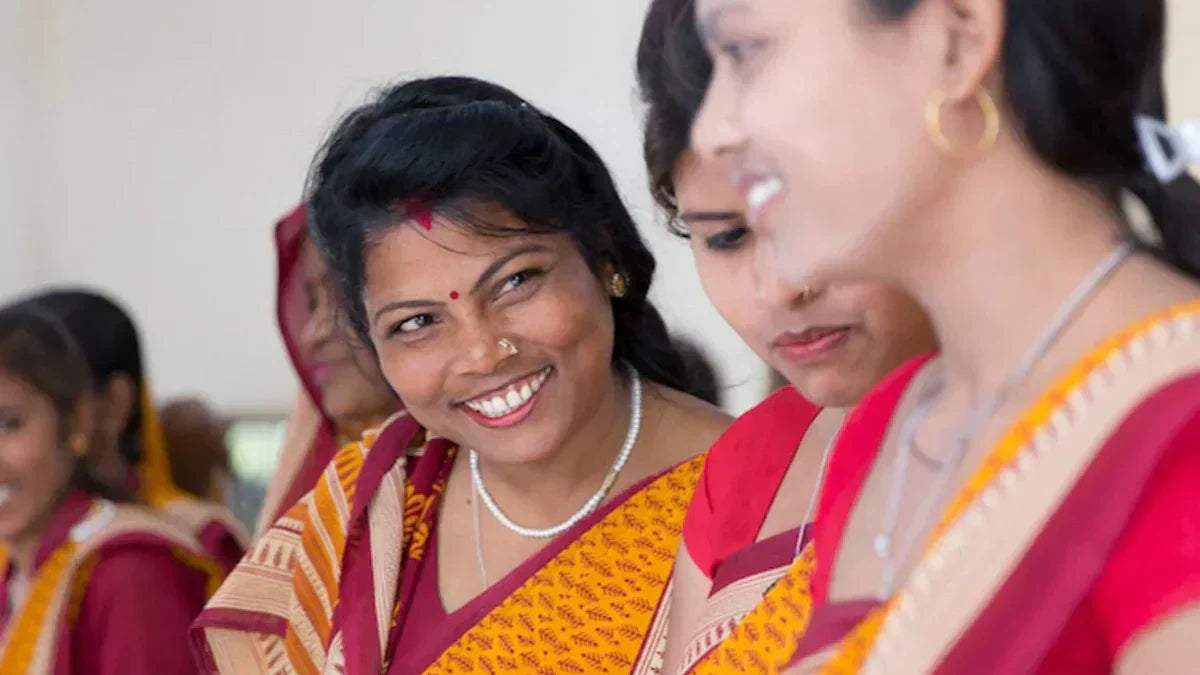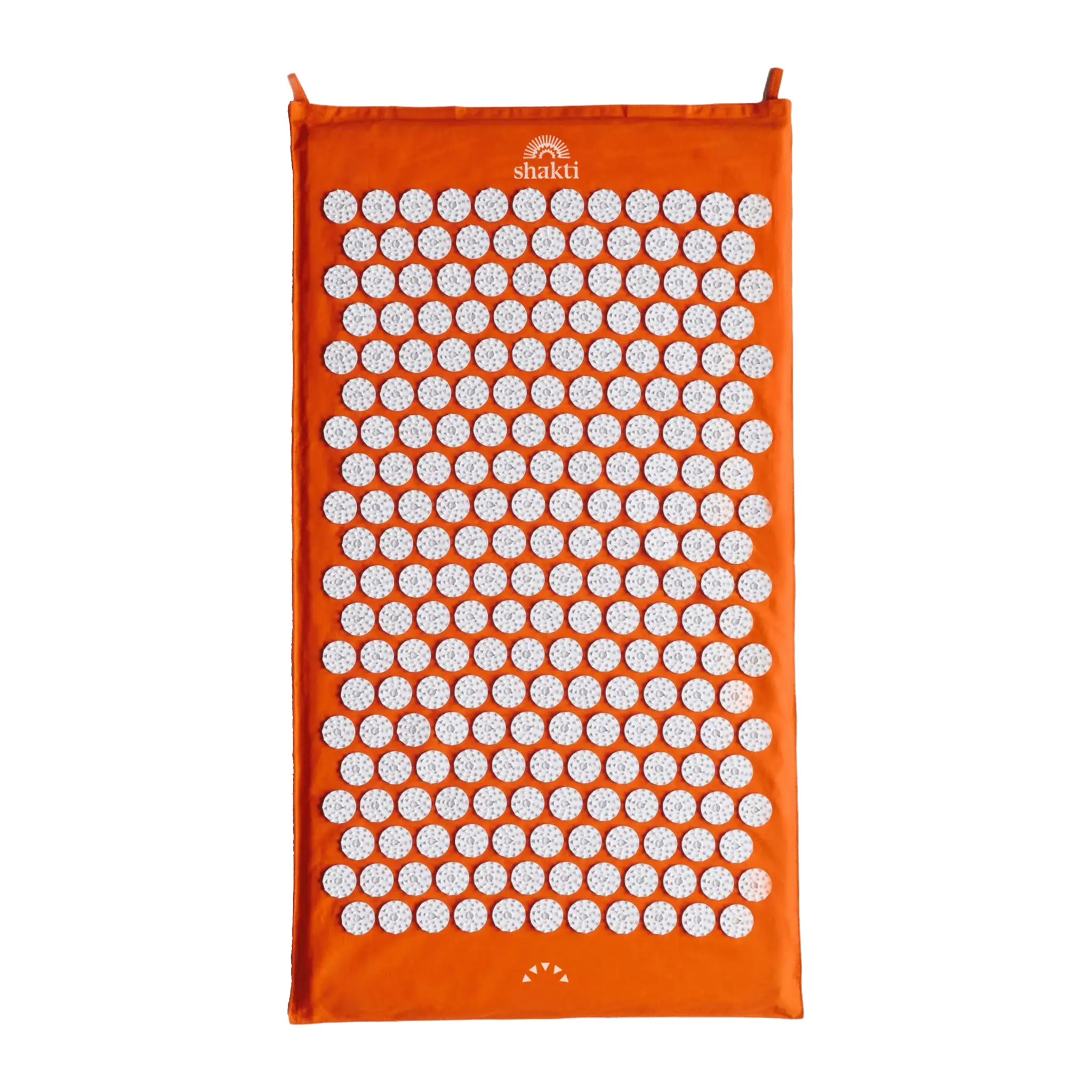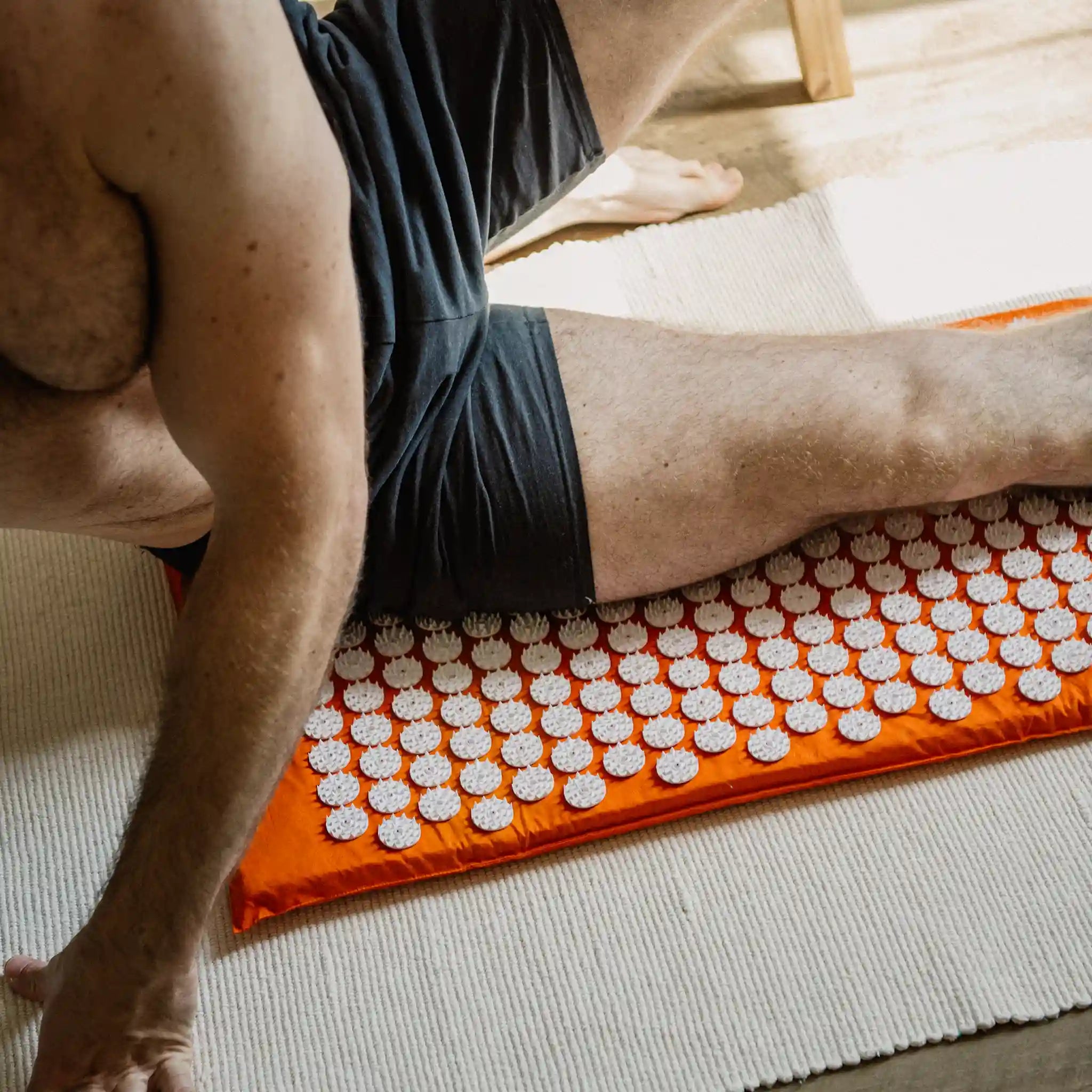As many of you already know, all Shakti Mats are produced in our Gratitude Factory in Varanasi, India. Every step in the production of a Shakti Mat is done by hand.
When we asked our colleagues there some time ago what else we could do for them, they replied: "Please come and visit us more often."
Of course, we didn't need to be told twice. After all, this is also a gesture of respect that they deserve. So this time we even brought along a whole team of photographers and cameramen and an Indian journalist and translator to interview the women and write down their very personal stories.
We were incredibly pleased to see how happy this made our colleagues. It is also a sign of respect that their hard work is appreciated and that their opinions and ideas are heard.
We would like to share our impressions from Varanasi with you in this blog post. So that you can feel where the magic of your Shakti Mat comes from and who has held it in their hands before you.
Content
2. how a day at the Gratitude Factory begins
3. many women in India are still disadvantaged
4. why only women work at the Gratitude Factory
A warm welcome
The reception was very warm. We were welcomed by the women with open arms and could visibly feel how happy they were that we came to visit.
Nevertheless, we do not want to deny the fact that women were quite shy in our society in the beginning. No wonder, all of a sudden these people from the West come with all the cameras and want to ask them questions. Of course, we were prepared for this and gave the women all the time they needed to get used to us, the new situation and the cameras.
After our three days together, we had a very warm and joyful last day of shooting. The women visibly thawed out and started to relax in front of the cameras. In particular, they made a lot of jokes about how they now felt like Bollywood stars.
Our way to Utah Pradesh
The road to the Gratitude Factory alone is unique: you see cows on the roads, there is constant honking and the traffic is certainly more chaotic than in other parts of India. The more kilometers we covered, the quieter it became and we arrived at our destination: Narrotam Pur, a town in Utah Pradesh, where Shakti Mat's Gratitude Factory is located.
The first thing we noticed when we entered the Gratitude Factory was a very special kind of serenity and calm. Of course, we can only speculate as to what this might have to do with. The fact that the Factory is consecrated as a temple certainly contributes to this. The main reason, however, is the energy of the women who fill the Factory with their daily work and presence. There is simply something special in the air that is difficult to put into words. The rooms are pleasantly cool and a little darker than outside in the blazing sunlight.
A very special atmosphere is in the air
There are currently 82 women working at the Gratitude Factory in Varanasi - they are all our colleagues. If you watch them at work, they actually work just like we probably all do. They chat, sometimes smile and you can tell that they really enjoy spending time together. What makes the whole thing so special? Their every action radiates a certain friendliness and politeness. Everything here happens in a very relaxed setting, so there is a certain reverence in the room.
This is how a day at Gratitude Factory begins
The working day begins with the women arriving at the factory, finding a place and getting ready for the daily morning prayer, which is called puja in India. Then one of our factory managers, affectionately called Aunty Amma-Ji by the women, comes and prepares the altar for the morning prayer. This all takes place in the first 30 minutes of their already paid working time, approximately from 9:30-10:00 am.
We were very impressed by the devotion of the women during the morning prayer. They were all focused and attentive for the entire duration of the puja. Within this prayer they bless the work site, the mats and their common community.
Immediately after the prayer comes something called prasad. Here, each of the women is given a raisin, which they eat as a sign of sacrifice. Only then does the real work begin for the women.
Every woman has her task
The tasks of our colleagues are distributed differently. Each of them takes on one of the production steps - from sewing to punching holes to checking the quality of the mats.
The women have the opportunity to switch between these production steps from day to day. They can therefore choose what they would like to do. Over time, however, we have noticed that many of them prefer to stay in one job and not keep switching.
A small percentage of the factory is absent every day, as we offer women the opportunity to take unlimited time off. This can be particularly helpful for family celebrations or religious holidays. In India, it is good manners for women to take part in such holidays. It is important for their position in society. If a woman takes time off on such a day, she will continue to be paid.
Around 6-8 women are usually assigned to the kitchen and prepare a fresh, vegetarian lunch for the women every day.
It gets colorful and loud during the lunch break
The lunch break was very exciting for all of us to watch. It takes a lot of patience to serve all the women, because it takes an incredible amount of time for the last one to get her dish. The best thing about it is that only when the last woman has her plate in front of her do all the women start eating together.
Then it gets quite colorful and loud, because the women laugh together, tell stories from their everyday lives and eat from each other's plates. This was incredibly beautiful for our crew to watch, because these were moments when we could really feel the women's solidarity.
Many women in India are still disadvantaged
Like many of you, we knew in advance that women from rural areas of India are unfortunately allowed to lead a much less self-determined life than we do here in Germany. Nevertheless, it is sometimes difficult for us to understand how far-reaching this understanding is.
For example, some of the women told us in the interviews that they first had to ask their brothers or husbands for permission before they were allowed to work here. Some of them give their entire salary to their parents or husbands, who then manage it. If the women want to access it, for example to go shopping, they have to ask permission.
The fact that they earn their own money nevertheless gives them a very special position within the family. Without this income, many women would be tied to domestic duties such as childcare, cleaning and cooking. Many would not even be allowed to leave the house.
Many of the interviews revealed that some of the women are very happy about this special position in the family.
It quickly became clear to us that the salary is not the biggest motivation for the women to come here in the morning. Rather, it is the community of women, which many in our interviews said felt like a second home to them.
Above all, this seems to be what the women associate with Shakti Mat and the Gratitude Factory. When you watch the women at work, you realize how much they support each other, give each other advice and share their knowledge.
The Caste System in India
Normally, everyone in India is equal - at least if you follow the law. However, the reality is different. People are classified into different castes based on religion. Belonging to a caste then determines how someone is viewed in society and what opportunities are open to them in life. You can read more about the Indian caste system here.
Many of the women mentioned in their interviews how much they enjoy the fact that they are all equal here and no distinctions are made based on caste or religion.
For example, Geeta Devi told us: "I feel like I belong here. The people are warm, helpful and then there is the wonderful work we do here. I feel very connected to this place, it feels like my real home (...) We all come from different castes and believe in different religions, yet we are all treated equally. There is no discrimination against each other."
Read Geeta's full interview.
Why only women work at the Gratitude Factory
It is still difficult for women - especially in rural areas of India - to find permanent employment. We want to stand up for these women and give them the chance to build something sustainable for themselves and their families.
During our visit, however, we realized that we underestimated what it means for our colleagues that only women work at Gratitude Factory. It is so much more than just the pure community aspect.
For many of the women, this is the exclusive reason why they are allowed to come here at all every day. If there were other men sitting here between them, then the majority of the women would not be allowed to come here.
The women took great care of Anniki, our producer and camerawoman
How a job can help you escape an arranged marriage
In many parts of India, unfortunately, it is still common for weddings to be arranged. Indeed, the women are usually married quite young.
In our interviews, we noticed that many women - especially the younger ones - are very proud to have had the opportunity to refuse an arranged marriage.
The fact that they are in permanent employment and earn their own money has given them the opportunity to make independent decisions and simply say "no" to their parents. Without a permanent job, this would certainly not have been possible.
How the day ends
As the day draws to a close, women call it a day at different times. Depending on what obligations they still have to fulfill at home or elsewhere. They don't have to ask anyone or sign out anywhere. They can leave the factory just like that.
It is not uncommon for one or more of the other women to finish the remaining work for the woman who has to leave the Gratitude Factory. The women settle this among themselves.
What we value most
One of the best memories we have of the Gratitude Factory is the gratitude with which we were met by our colleagues. They welcomed us warmly and made us feel part of the Shakti Mat family in Varanasi.
This gratitude was particularly noticeable when they talked about additional benefits such as the Shakti Mat Healthcare Fund or the scholarship program for their daughters. This has shown us that these initiatives, which we have built up over the last few years, do a lot to ensure that our colleagues value their work at Gratitude and enjoy doing it.
In all the interviews we conducted, the women mentioned how incredibly happy they were to have come to this path and that they never wanted to leave it.
Why we share this with you in such detail?
Our colleagues from Varanasi are firmly anchored in our Shakti Mat philosophy and are one of the main reasons why we wake up in the morning and throw ourselves into our work full of motivation. We want to do everything we can to ensure that they can lead a self-determined and financially independent life.
We would also like to convey this feeling to you. When you buy a Shakti Mat, you are not only buying the opportunity to relieve your pain and bring more relaxation into your everyday life. You are also contributing to an important project that offers women from an unfortunately still disadvantaged part of the world the opportunity to lead a happier and more self-confident life.
Every Shakti Mat radiates this gratitude and energy - we have absolutely no doubt about that!
Thank you for taking the time to read this article. We would be delighted if you would like to find out more about the Shakti Mat or if you have any further questions. You can simply contact us on Facebook, Instagram or by email at [email protected] and we will be happy to answer your questions!
Local Brahmins, who also perform the morning prayers at the Factory - here with our co-founder Glynn during the blessing
Manager and "auntie" Amma-Ji leads the morning puja
Even Anniki needed a short break
Our female crew, Ruhani and Anniki, at work
About the author
Karina Schönberger has been practicing yoga and meditation regularly for many years and owes her creativity in her day-to-day work to this practice. She studied media and tried her hand at marketing, events and PR. In the end, she decided to work for herself. Today, she writes content to inspire you to live your life more consciously and happily.


